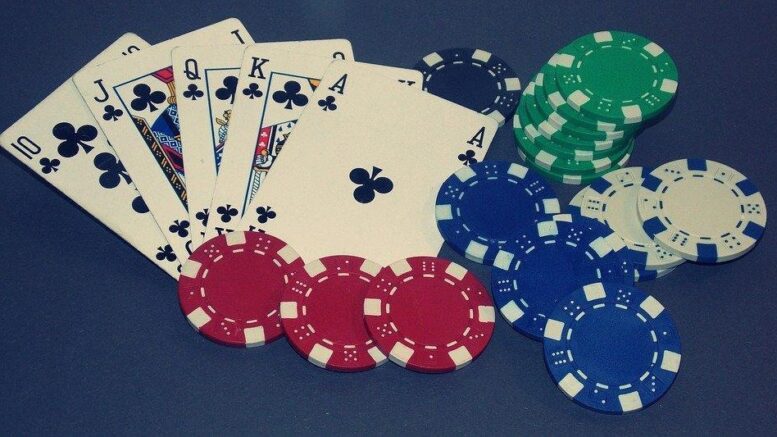There’s truth in the proverb that too much of a good thing is bad for you. No matter how much fun gambling is, it can quickly turn into a problem if you don’t remain level-headed. It’s exciting to watch the reel spin closer and closer to a big win, and before you know it you’ve spent way over your intended budget.
Many people start playing casino online chile games for the right reason, and there’s only one: to have fun. However, somewhere along the line, they lose focus, and it becomes a means to make money. The moment you play casino games only to win cash, it raises a red flag.
Amy Martinsson, the author here, discusses how to help someone with a gambling problem. She regularly consults casino operators in Sweden, to assist them in their efforts to promote responsible gambling.
What Are the Signs of a Gambling Problem?
To help you recognise when a friend or family member is in danger of developing a problem, you have to know the signs. It’s also important that you don’t confront such a person without compassion. Gambling addiction is the same as alcoholism or drug addiction. It’s a disease and should be treated correctly by a professional.
Here are a few signs and symptoms of somebody who has developed a gambling problem.
- They often lie about their time and money spent on betting
- They often borrow money for ‘one last bet.’
- It’s become like an obsession, and they always want to place a bet
- They have financial problems
- Dysfunctional relationships develop at home
- You start to suspect them of theft or other illegal behaviour to obtain money
- They are remorseful after gambling
What to Do If You See the Signs?
Let’s start by sharing what you shouldn’t do. Never confront the person in an accusing manner. It’s best to get professional help the moment you suspect that a loved one is headed for trouble.
Gambling addiction typically starts slow and progresses over time. You’ll need the support of a professional to identify in which stage your friend, or family member is. It’s vital as it’ll determine the immediate course of action to take.
Since the person you’re trying to help might not recognise that they have a problem yet, getting support for yourself early on is equally important. It’s for this reason that it’s very helpful to get advice from a registered organization with experience in this field. You’ll need guidance and support through this process as it can take its toll on everybody involved.
According to the experts at Sweden’s Gamblers Anonymous it helps to get a third party involved as they’re more likely to be non-judgemental and timely with their help and advice. It’s quick and easy to reach a support group leader via the website’s live chat feature. They’ll be able to give helpful immediate advice and can recommend support groups in your area.
Signing up with an organisation like the Gordon Moody Association opens up avenues for gambling addiction help that includes:
- Home visits
- Women-specific treatments
- Online support
- An outreach service
- Therapy for family and friends
- An intensive 12-week therapy programme
What Is the First Step?
You’ve now recognised the signs and know that there is help available to both you and your loved one. How do you start the process?
According to the experts, it has to start with an honest conversation. Don’t accuse or blame the person with the problem. Start by asking questions that can help the person recognise the problem and admit it to themselves and you. Only once you reach this point of total honesty can you reach out and seek professional help as a team. This is the step in the recovery program where excellent organisations such as gamblers anonymous can become part of the journey.
Conclusion
Even with the best of intentions, things can go wrong very quickly if you attempt to address potential gambling addiction in the wrong way. It already puts tremendous pressure on relationships, so it helps to remain level-headed throughout the process. Take some time to reflect on the right course of action before diving in headfirst. Prepare yourself mentally and emotionally for the road ahead. Remember that you’re never alone in this journey. All you have to do is to reach out to one of the many organisations available to assist you. Most reputable online gambling websites have direct links to groups such as BeGambleAware.org, localized Gamblers Anonymous support groups and other online support groups and councillors that are available 24/7 via online chat features.
About the author:

Amy Martinsson has long and solid experience in the casino world and have, among other things, worked as a live dealer in both the USA and the UK for more than five years.
My passion for online casino and the gaming world in general was awakened as a child when I watched my grandfather and father play Blackjack and Poker. It is this unique insight and passion for games and casino that is the basis for the construction of our website.
Article edited and fact checked by our editorial team.
References:
- Gambling disorder. In: Diagnostic and Statistical Manual of Mental Disorders, Fifth Edition, Text Revision DSM-5-TR. American Psychiatric Association
- Emily Sohn. How gambling affects the brain and who is most vulnerable to addiction. July 1, 2023, American Psychological Association. Retrieved from: https://www.apa.org/monitor/2023/07/how-gambling-affects-the-brain
- Yau YH, Potenza MN. Gambling disorder and other behavioral addictions: recognition and treatment. Harv Rev Psychiatry. 2015 Mar-Apr;23(2):134-46. doi: 10.1097/HRP.0000000000000051. PMID: 25747926; PMCID: PMC4458066.
- Karim R, Chaudhri P. Behavioral addictions: an overview. J Psychoactive Drugs. 2012;44:5–17.
